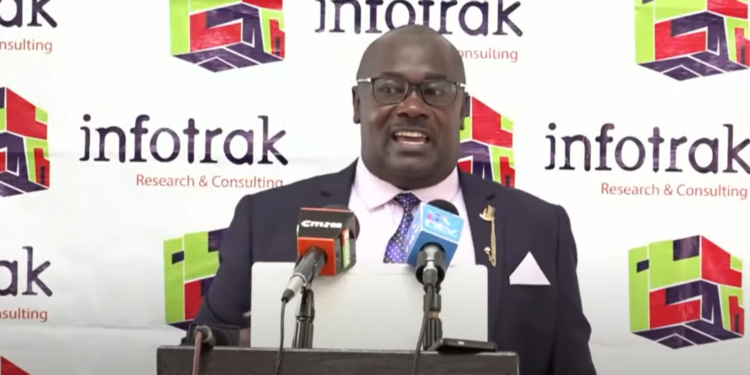Nearly four out of five Kenyans believe the Finance Bill 2024 proposed by the government will not have a positive impact on the country’s economy, according to a new national opinion poll conducted by Infotrak Research & Consulting.
The wide-ranging survey of 1,700 respondents across Kenya’s 47 counties found that 77% do not expect the controversial tax measures outlined in the Finance Bill to provide any economic boost. Only 13% foresee potential benefits from the legislation.
The findings highlight deep public skepticism toward government efforts to raise revenues through increased taxation on goods, services and environmental products. The Finance Bill has proved particularly contentious for proposing to introduce a 16% value-added tax on items like bread, mobile money transactions and insurance services.
The poll showed widespread opposition to many of the Finance Bill’s key tax provisions, including an 87% rejection rate for the proposed 16% VAT on bread and a strikingly similar 86% opposing the VAT idea for financial services like M-Pesa. Another 83% were against plans to add levies on environmentally “unfriendly” products like batteries, tires and phones, while 81% pushed back on a 2.5% tax on vehicle values meant to fund an insurance pool.
Regionally, resistance to the Finance Bill was strongest in North Eastern county, where 85% of respondents said the legislation would have no positive economic impact. The most supportive areas were Nairobi (16%) and Coast (15%), though skepticism still dominated.
Awareness of the Finance Bill itself was mixed, with 54% saying they had heard about it and 46% unaware of the proposed legislation. Central county had the highest awareness at 62% while Eastern was lowest at 41%. Older Kenyans and men were more likely to know about the Bill.
The findings reinforce the public’s economic anxieties, with unemployment at 30% and transport/infrastructure issues at 22% also ranking high among the biggest concerns after cost of living. Regional differences emerged, with Nyanza viewing cost of living as the top worry at 60% while North Eastern prioritized access to clean water.
The survey results, based on computer-assisted phone polling from May 23-29, carried a 2.53% margin of error at a 95% confidence level.
















